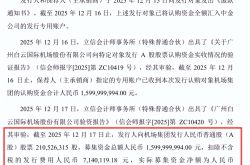''' [Special 618 Planning] JD.com, Taobao, and Pinduoduo are Locked in a Battle of Hundred Billion Subsidies. Is There a New Solution for 618?
![]() 06/18 2024
06/18 2024
![]() 701
701
Author | You Li
Learn More Financial Information | BT Financial Data News. The article consists of a total of 4003 words and is expected to take 11 minutes to read.
"The 618 is coming to an end, and the feeling of desolation or monotony is shared by everyone this year."
As the 618 enters its 21st edition, consumer enthusiasm has become increasingly indifferent, and it seems only Taobao, JD.com, and Pinduoduo are still going all out for the 618.
It must be acknowledged that their PK has lost the flavor of creative competitions from previous years and has instead unified around hundred billion subsidies. Industry insiders joke that 618 is dead, and now it's just a shell of hundred billion subsidies.
The view that 618 relies entirely on hundred billion subsidies to hold the event is widespread, and it's not entirely wrong, but if you think about it from a different angle, aren't the countless e-commerce promotional events every year also consuming the brand image that 618 has painstakingly accumulated?
618 and Double 11 divide the competition in the e-commerce industry into two parts, with everyone occupying half of the year. The decline in promotional discounts is likely to hurt subsequent promotional events and send a negative signal to the market. Whether 618 and hundred billion subsidies can coexist and how they can coexist is a question that needs to be discussed repeatedly.
1
Is the vitality of hundred billion subsidies much shorter than 618?
For current e-commerce platforms, monthly promotions and daily hundred billion subsidies have become the norm, but in terms of driving growth, industry consensus is that it is "getting weaker and weaker".
First, let's look at hundred billion subsidies. Since last year, Taobao and JD.com have lowered their架子 and joined the "price competition" camp, and hundred billion subsidies have gradually decoupled from Pinduoduo, becoming one of the default choices for consumers' online shopping. Recently, during the 618 promotion, multiple platforms such as Cat, Dog, Pin, and Kuai have been using the banner of "hundred billion subsidies" to attract traffic and promote activities.
Few people remember that the beginning of hundred billion subsidies is intricately linked to 618.
In 2019, internet e-commerce was still at the end of its golden age, and consumers were becoming increasingly dissatisfied with longer promotional times and more complex discount strategies, but the initiative was still in the hands of the platforms.
That's when Pinduoduo came up with this unconventional strategy.
No need to reach a minimum purchase amount for discounts, no need to wait for a specific time, just click into the hundred billion subsidy channel to purchase brand merchants' products at a low price. Pinduoduo will make up for the shortage of funds, and its credibility will endorse consumers' concerns.
"Simple and brutal but effective," "the impact is suffocating," "everyone's attention has been drawn away by Pinduoduo"... According to industry insiders, no one believed that Pinduoduo would succeed at first, but later, no one could think of a way to defeat Pinduoduo.
Now, more than five years later, Pinduoduo has made hundred billion subsidies a daily operation. Its first-quarter financial report showed that Pinduoduo's revenue and net profit both exceeded market expectations, with the former increasing by 131% year-on-year and the latter increasing by 202% year-on-year, reaching 86.8 billion yuan and 30.6 billion yuan, respectively.
This is also the 11th consecutive quarter of rapid growth in net profit (with a growth rate of no less than 50%) since Pinduoduo achieved its first profit in the third quarter of 2021. Data from the first week of the 618 promotion showed that the number of Pinduoduo hundred billion subsidy merchants increased by 90% compared to before, and the sales of multiple home appliance brands exceeded 1 billion yuan.
Traditional e-commerce platforms and new e-commerce platforms have thus formed a "冰火两重天", with the 618 being criticized every year for its lack of sincerity and effectiveness on one side, and hundred billion subsidies continuously striking on the other side.
Unable to compete, Taobao and JD.com chose to "join if they can't beat," thus creating the composite product of 618 locked in a battle with hundred billion subsidies.
The reason for the combination of the two is clear: to drive demand expansion and stimulate consumption growth to drive business. However, the result is the opposite. Taobao and JD.com's 618 performance last year and this year is not optimistic. Judging from the platform's announced battle report, the specific numbers are getting smaller, and the percentage growth and newly heard tracks are increasing.
It must be acknowledged that this is inextricably linked to changes in the overall environment. From last year to this year, people's willingness to consume has been declining. Due to considerations about future income prospects, many people's attitudes during the 618 event have changed from "not buying during the promotion is a loss" to a conservative attitude of "buying less if possible, and not spending at all if not necessary".
But on another level, hundred billion subsidies have indeed accelerated the "death" of festival promotions.
As for consumers, 618 and Double 11 have long lost the thrill of halving prices after midnight.
Complex rules for reaching minimum purchase amounts for discounts, long promotional times, and often having to wait for ten days or even half a month for pre-sales mechanisms all make people feel tired. The slogan of adding hundred billion subsidies is loud, but in reality, it's just shifting the same amount of discounts from one hand to the other. If the price reduction is not sincere, then the subsidy is meaningless.
As for merchants, hundred billion subsidies seem more like another way for the platform to charge under a different name.
The space for giving discounts to consumers is limited. Now that e-commerce platforms have promotional activities almost every month, users are numb, and so are merchants.
For the same reason, it is also difficult for platforms to offer attractive discounts when facing hundred billion subsidies. After all, unlike Pinduoduo, Taobao and JD.com, as pioneers, have to consider how to iterate or reuse previous secrets. By this time, the power of hundred billion subsidies has become weaker and weaker.
2
Are Taobao and JD.com being kidnapped by hundred billion subsidies?
When Taobao and JD.com joined the hundred billion subsidy camp last year, the market cheered, and most people felt that they had "finally seen the light." However, Yang Jian, an internet e-commerce industry researcher, has always held a different view.
He believes that Taobao and JD.com may not be suitable for doing hundred billion subsidies. It's easy to make the decision to introduce them hastily, but it's not so simple to want to withdraw. The lower consumers' enthusiasm for 618, the more platforms rely on hundred billion subsidies to increase GMV, and over time, they end up being kidnapped by hundred billion subsidies.
Taking Taobao as an example, on April 23rd of this year, Taobao launched a five-day "Hundred Billion Kill Festival" early, adding more on top of the hundred billion subsidies. The subsidy ceiling for this kill festival is 3000 yuan. In addition to regular hard currency goods, Taobao also brought in scarce items such as the Huawei MateX5 and the Nintendo Hogwarts Legacy cartridge to increase attractiveness.
However, the consumer experience was not good.
On social platforms such as Xiaohongshu and Hupu, there are plenty of consumer complaints about stepping on landmines during the hundred billion kill festival.
First, when selecting products, the main promotions during the hundred billion kill festival are mostly packages, such as the Apple family bucket and the Dyson family bucket, which are not friendly to consumers who want to purchase single items. Compared to price reductions, it seems more like the platform is engaging in "forced buying and selling".
Second, it is "difficult to grab." Netizen Jerry spoke from personal experience, saying that he had managed to grab a Luzhou Laojiao despite setting an alarm, but to his surprise, Taobao secretly initiated a refund for the item worth only 700 yuan without his notice. Another consumer, Asha, was even worse off and didn't manage to grab the subsidized price, even though she placed her order in the fourth second. She said helplessly, "If Taobao can't handle it, just say so directly."
And a search on the 618 hundred billion subsidy square will reveal that the same issues are repeating.
Qingquan, who has spent tens of thousands of yuan on Taobao, complained that Taobao claims to endorse merchants with hundred billion subsidies, but it's just an excuse. "When buying, it doesn't show the name of the third-party store, making people mistakenly think it's an official channel. When there's a problem, they tell you to go find the third-party seller."
Unfortunately, Qingquan encountered a seller who didn't ship the product and had to go back and forth between the platform and the merchant. In the end, the other party did not ship the product either and simply compensated 100 yuan to settle the matter. "The upper limit of compensation for out-of-stock third-party sellers is 100 yuan. It seems that the third-party store still has the final say. Even on the hundred billion subsidy channel, doesn't Taobao have the right and obligation to constrain sellers?"
Austin was also furious with Taobao's "buy expensive, get compensated" promise. Two days after placing an order for an iPhone, he found that the price had dropped by 100 yuan before receiving the item. When he went to Taobao customer service to apply for price protection, his application was rejected on the grounds that it must be submitted within 24 hours of payment. "Such a big platform acts like a child's play. It said it would compensate for overpriced purchases, but the conditions are so stringent. It's obviously bullying consumers."
Why is it so difficult to please everyone? Fundamentally, it may be because Taobao and JD.com do not have the genes to do hundred billion subsidies.
The essence of hundred billion subsidies is to squeeze water out of the supply chain, eliminate premium prices, and benefit consumers, concentrating demand-side energy to influence supply-side choices. However, Taobao and JD.com's long-standing practice is to serve the supply side, setting targeted activities for different merchants, displaying windows to those who want to display them, and using supply to stimulate demand-side consumption.
The difference in logic determines the difference in what they are good at.
The real accumulation of traditional e-commerce platforms lies in merchant lifecycle management, operational assistance, logistics and distribution, and the mindset of occupying bulk commodities and high-premium products. Abandoning these ToB resources and trying to directly do ToC business is naturally inefficient. It's more cost-effective for them to stretch their strengths to do what hundred billion subsidies cannot accomplish.
Moreover, under Pinduoduo's long-term advocacy, hundred billion subsidies have become synonymous with Pinduoduo. Taobao and JD.com continuing to use this concept somewhat resembles working for someone else.
3
Is low price really the most important thing?
Of course, as Yang Jian said, it's easy to start but difficult to turn back. Looking beyond the subsidy framework, what other solutions does 618 have? Or put it another way, what else can e-commerce platforms provide consumers besides low prices?
In the consumer industry, affordable prices and high quality are the greatest certainties. Customers always greedily hope to balance the infinite demand for "cheap and good products," but for the supply side and platform side, different historical stages have different missions, and the priority order of "more, faster, better, cheaper" must also change along with changes in consumer demand.
From the perspective of national development, this stage is obviously a period when China's economic climb is relatively gentle.
The era of explosive demand growth and rapid expansion of supply-side capacity during the early stages of reform and opening up has passed, and the mindset of "having goods can lead to transactions" needs to change. E-commerce platforms need to see consumers' demands.
The increasing importance of the demand side, coupled with consumers tightening their purses, easily leads us to misunderstand that price is the only important factor, with service added at most. This is a typical misconception.
It's a simple truth. You are about to go on a long trip in three days. To prepare for this trip, you ordered a nice and cheap suitcase from the hundred billion subsidy channel.
Two days later, when the suitcase arrived at home, you found that the goods did not match the description and had to apply for a return. Both the merchant and the platform were very accommodating, processing the complaint immediately and refunding the money promptly, and even giving additional coupons. But only you know that none of this helps. Because what you really need is a suitcase that you can take with you tomorrow, and the most urgent need at the moment has not been resolved. All those so-called additional values are zero.
Many consumers have encountered similar situations, and they have expressed their opinions on various platforms, stating that as long as the quality is acceptable, they can do without rights protection such as "refund only".
This is the core of the problem. Consumers are not satisfied with cheaply made goods. They hope to buy better - or at least the same quality - products for less money. Quality remains an indispensable part.
Returning to 618 and hundred billion subsidies, 618 is a concentrated presentation of market conditions. Grasping the pulse of the next round of changes will create new opportunities. Consumers are picky, changing, and fickle. They pursue the maximization of comprehensive experience, so low prices may be important for a while, but they won't always be. Quality may be ignored for a while, but it won't be forgotten forever.
Miura Nobuhiro, the first researcher of Japan's consumer society, proposed that the emergence of new consumer group needs has accelerated the arrival of the "fifth consumption era," where consumers pay more attention to quality, and overall quality that places equal emphasis on price and value.
According to 36Kr, Alibaba has realized that it cannot fully replicate Pinduoduo. Rather than pursuing absolute low prices, it is better to emphasize "ultra-high cost-performance," considering factors such as price, service, and product quality in a weighted manner, which is acceptable to both users and merchants.
From this perspective, the awkward situation of hundred billion subsidies plus 618, which makes both merchants and platforms feel uneasy, may persist for some time, but after changing their mindset, separation is not impossible.
A 618 without hundred billion subsidies may usher in a new and larger market after all, as everything in the world is in a dynamic balance, and we will eventually find ourselves in a new stable state.
'''




